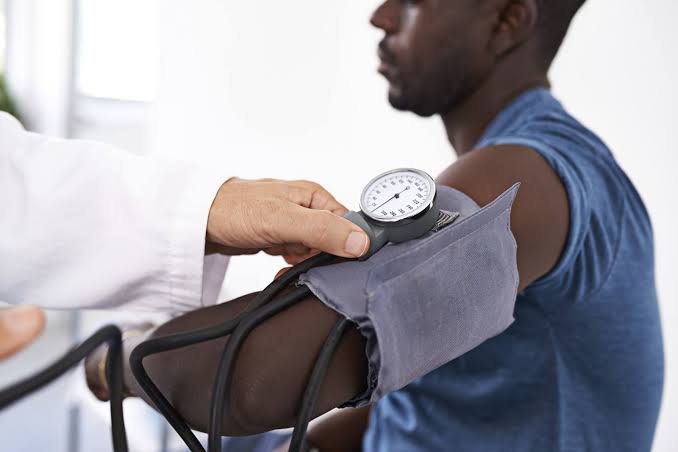Hypertension, or high blood pressure, affects thousands of people in the world.
It is a common health problem that often has no noticeable symptoms.
Hypertension is a condition in which the force of blood against the walls of arteries is consistently too high.
Checking your blood pressure regularly can inform you of the next step to take. A blood pressure measurement below 120/80 mmHg is within the normal range, while a reading of 140/90 mmHg or higher is considered indicative of high blood pressure.
High BP can cause damage to blood vessels and organs over time, increasing the risk of heart disease, stroke, kidney disease and other health problems. However, it is preventable when certain lifestyle changes are made.
Here are some lifestyle tips to reduce hypertension risk.
Reduce salt intake
Excess salt intake is a leading cause of hypertension. It is recommended to reduce salt intake, limit the consumption of processed foods, and other packaged products as they are high in sodium. Using herbs and spices to season food instead of salt is proven good. Additionally, including fresh fruits and vegetables and cooking at home also helps in controlling salt intake.
Exercise regularly
Regular exercise can also help in lowering blood pressure and improvise overall health. It is advised to move your body for at least 150 minutes including moderate-intensity exercise per week. Include brisk walking, cycling or swimming. To enhance muscle growth and increase metabolism, it is advised to include exercises that focus on strength training.
Maintain a healthy weight
Obesity is a significant risk factor for hypertension. Maintaining a healthy weight through regular exercise and a balanced diet can help lower blood pressure. To promote overall health, it is recommended to engage in physical activity regularly, Additionally, including strength training exercises can help increase muscle mass and boost metabolism. Choose a healthy, balanced diet that includes plenty of fruits, vegetables, whole grains, lean protein, and healthy fats.
Manage stress
Stress can cause temporary spikes in blood pressure, and chronic stress can lead to hypertension over time. To alleviate stress, consider practising relaxation techniques such as deep breathing exercises, meditation or yoga. Regular exercise, high-quality sleep of 8 hours, and social support can also help manage stress levels. Avoid or reduce stressful triggers when possible, and practice self-care activities such as reading, listening to music, or spending time in nature.
Limit alcohol consumption and quit smoking
Excessive alcohol consumption and smoking can increase blood pressure and increase the risk of hypertension. If someone has high blood pressure, it is recommended to avoid alcohol and smoking altogether.



